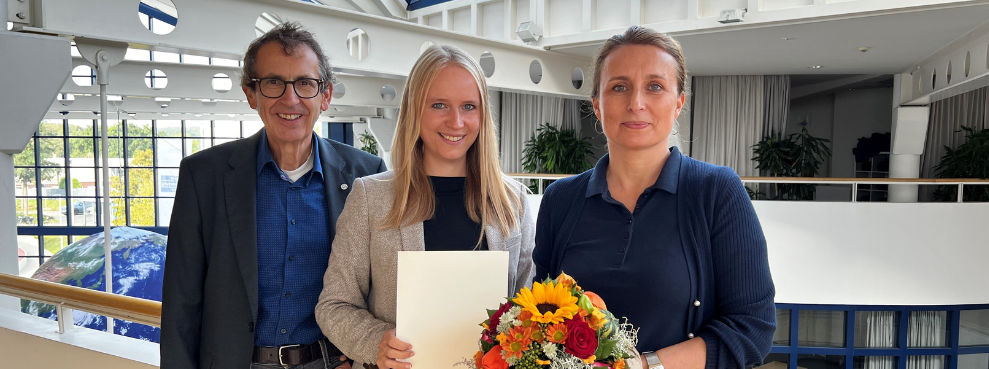How loneliness affects our lives
Witten/Herdecke University appoints Prof Dr Susanne Bücker to the Professorship of Developmental and Educational Psychology.

Are young adults lonelier today than they were 30 years ago? Can loneliness be measured in children? And how does happiness develop over the course of a lifetime? Prof Dr Susanne Bücker deals with these and other questions in her research. She has now been appointed to the Professorship of Developmental and Educational Psychology at Witten/Herdecke University (UW/H).
In her research in developmental psychology, Prof Bücker focuses on the period from late childhood to old age, focussing in particular on the socio-emotional phenomena of loneliness and self-worth. For example, she has investigated how the feeling of loneliness changes over the course of life: Young adulthood (18 to 29 years) and old age (from 80 years) in particular represent risk phases in which people feel lonely more often than in other stages of life. "This finding initially comes as a surprise to many, because young adults are highly networked and seem to have every opportunity. Nevertheless, many young people are apparently dissatisfied with their social relationships or do not feel understood," says the researcher.
Making loneliness measurable in children and young people
She and her team are also currently developing a questionnaire to measure loneliness in children and adolescents; there has been little research on this topic in German-speaking countries to date. In the coming months, the questionnaire will be tested in a large-scale validation study. It will then also look at the role played by children's personality traits - for example, whether shy children are more susceptible to feelings of loneliness. "While we already know from reserved adults that they often long for more contact, there is still no research on this in children," explains Prof Bücker.
She also worked on the topic of loneliness for two years as a scientific expert in a commission of enquiry in the NRW state parliament. The experts made evidence-based recommendations to the state government on how to combat loneliness in different age groups and how the topic can be integrated into training curricula for care and education professionals. After all, years of research have shown that people who feel chronically lonely not only have an increased risk of depression or anxiety disorders, but also of strokes, cardiovascular disease, diabetes or dementia. "This is now known in science, but has not yet been sufficiently recognised in health policy," says Bücker. "I am strongly in favour of doing much more preventative work."
The theory of the midlife crisis cannot be scientifically confirmed
In past studies, the researcher has also looked more generally at the question of how satisfied people are with their lives, how satisfaction develops over the course of a lifetime and whether there really is a midlife crisis. The result: "We don't see a decrease in life satisfaction in midlife, which speaks against the theory of a midlife crisis. In puberty, on the other hand, well-being drops significantly," reports Bücker. "It is a turbulent and demanding phase of life in which a lot happens physically, of course." After puberty, life satisfaction then increases slightly, a trend that only reverses again in old age from around 70.
After working at the German Sport University Cologne and the Ruhr University Bochum, Prof. Bücker currently teaches on the Bachelor's degree programme in Psychology at UW/H. "Many psychology students from Witten report that they would like to work as therapists later on. Many mental disorders - even those that are only diagnosed in adulthood - have their origins in childhood and adolescence. That's why you need a basic understanding of developmental psychology in order to be able to address patients' needs well. They are given this in lectures and interactive seminars on developmental psychology and educational psychology."
Photos for download
Contact person

Svenja Kloos, M. A.
Team Leader Communication
Administration | Communication & Marketing
Alfred-Herrhausen-Straße 48
58455 Witten
Room number: 2.F05 | 2.028

